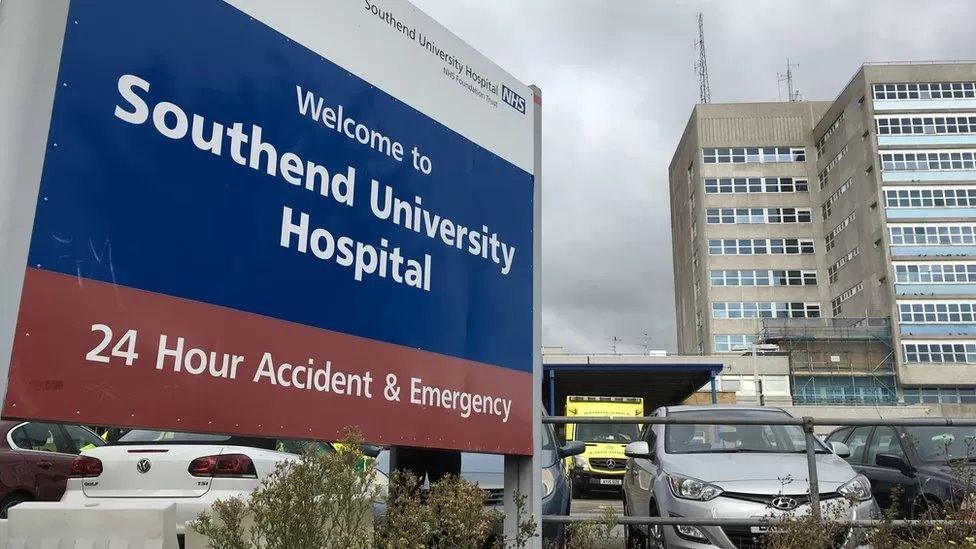‘Unwise’ self-discharge led to death - coroner
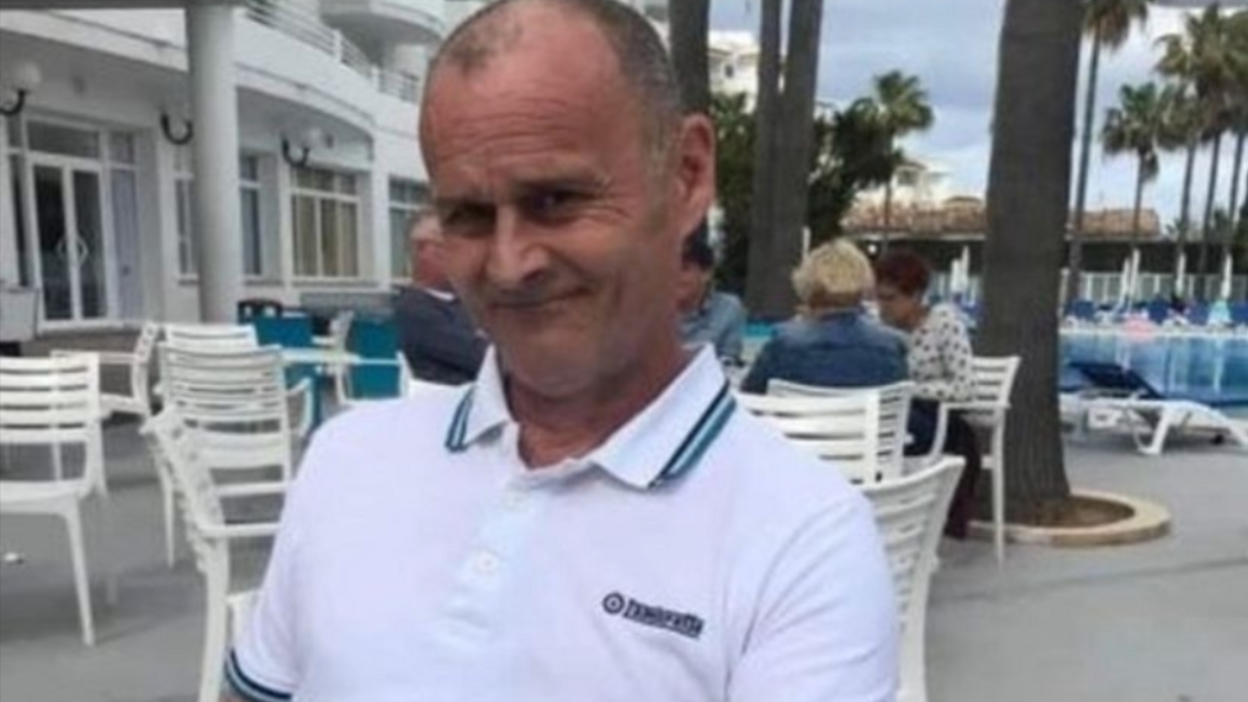
Tony Sayers self-discharged from hospital before a home care plan had been put in place
- Published
A man who discharged himself from hospital against medical advice died four days later due to blood loss, a coroner has concluded.
Tony Sayers was admitted in April 2023 with a swollen arm after he injected himself with amphetamines but missed the vein.
He discharged himself after treatment at Southend and Basildon hospitals, before a home care package had been established.
Essex area coroner Sean Horstead said his decision to leave hospital was an “unwise decision… which was going to be very costly".
An inquest at the Essex coroner's court heard Mr Sayers’ had used drugs as a way to cope with the effects of an “incredibly challenging” childhood, including experiencing abuse while staying in youth institutions.
He went to Southend University Hospital on 26 April, where doctors noted he missed his vein when trying to inject himself with amphetamines a week before.
The 61-year-old was treated for a haematoma before being moved to the vascular unit at Basildon University Hospital where he had another operation to remove a pseudoaneurysm.
An independent hospital review later concluded it was “probably unwise” of the orthopaedic team to explore Mr Sayers’ arm without performing a scan first, although the area coroner accepted this did not contribute to his death.
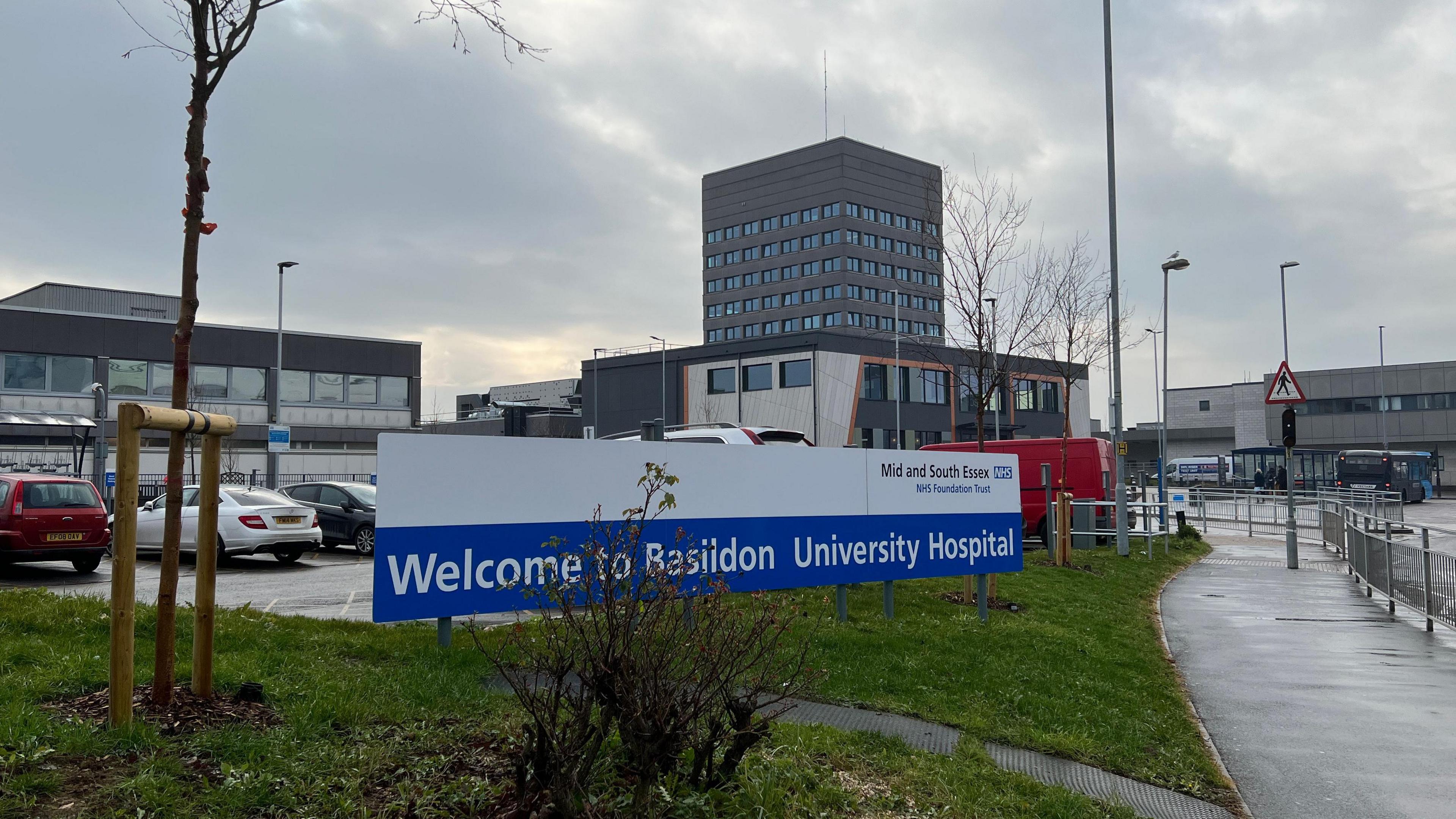
Mr Sayers was treated at both Southend and Basildon hospitals
Mr Sayers discharged himself on 11 May, which meant he missed two opportunities for his dressings to be properly replaced - the inquest was told.
In the early hours of 15 May at home in Shoeburyness near Southend, Mr Sayers shouted “my artery’s gone again”.
Paramedics found Mr Sayers covered in blood and rushed him to Southend hospital. He was declared dead just after 04:00 BST.
An infection had developed in his arm causing a severe bleed.
A post-mortem examination found no drugs were in his system.
'Deepest condolences'
The inquest heard from Dawn Patience, director of nursing for the Mid and South Essex NHS Foundation Trust which runs both hospitals.
Ms Patience apologised to the family for not offering Mr Sayers a change of clothing after he sat in blood-soaked clothes for several hours, and also for not communicating better with Mr Sayers and his family.
Diane Sarkar, chief nursing and quality officer for the trust, said "our deepest condolences go to the family".
She said a review of his care had taken place and that "we accept the findings of the coroner".
"We recognise the importance of aftercare for our patients and we are working closely with our mental health provider to ensure full support is given to people with mental health concerns who need medical treatment," she added.
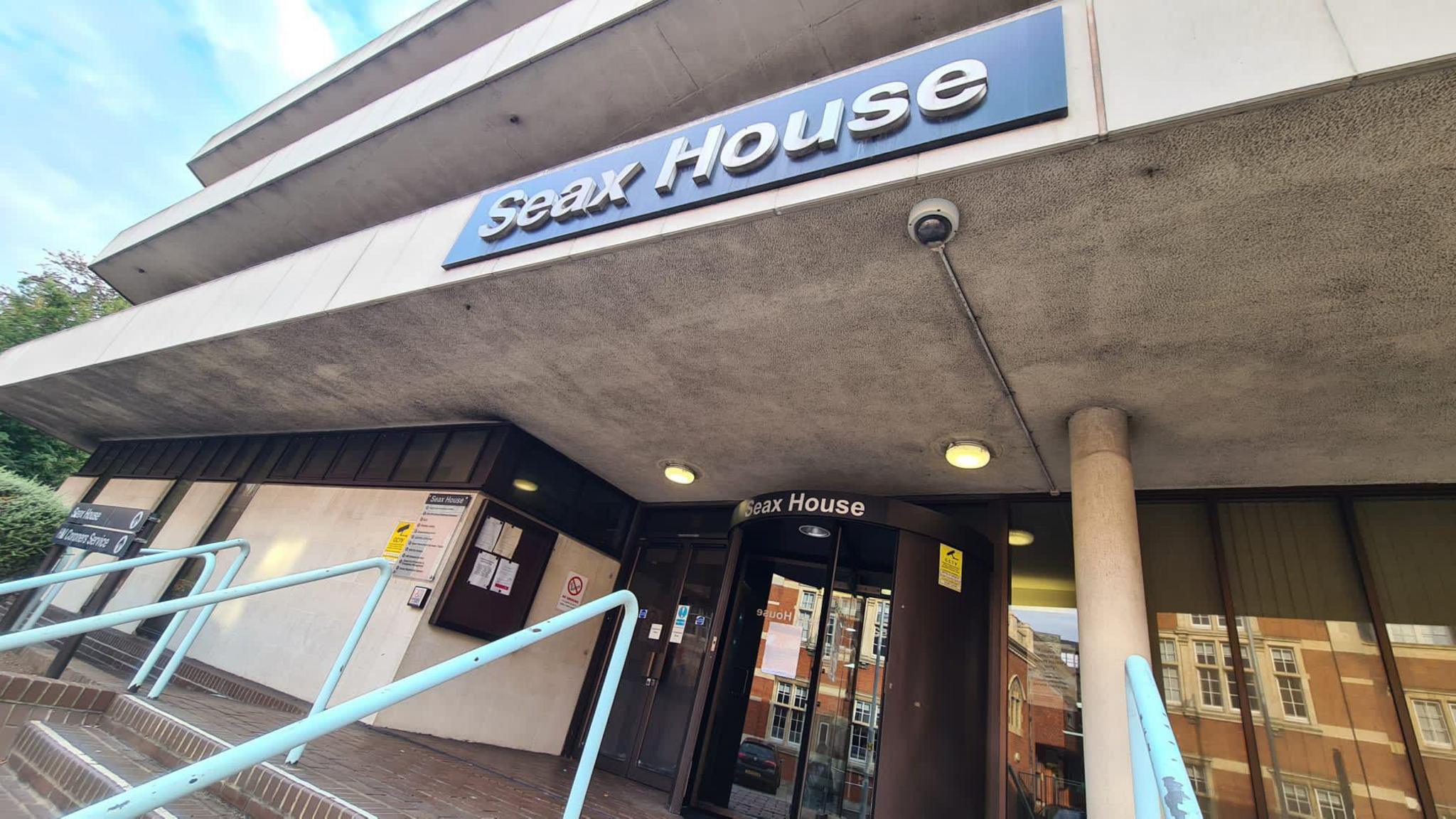
The inquest took place at the Essex coroner's court in Chelmsford
The inquest also heard how Mr Sayers spent years seeking help to talk about his childhood trauma but was “pinged around the system”, even moving out of Essex out through frustration at not receiving the treatment he wanted.
The Essex Partnership University NHS Foundation Trust, which runs mental health services in the county, said it continued "to work with partners across health and social care to provide the best possible care and support to people with often complex needs".
Delivering a narrative conclusion, Mr Horstead said: “[Mr Sayers] was a living, breathing manifestation of the tragic consequences of what his childhood had imposed upon him."
Follow Essex news on Facebook, external, Instagram, external and X, external. Got a story? Email eastofenglandnews@bbc.co.uk, external or WhatsApp us on 0800 169 1830
Related topics
Stories like this
- Published1 November 2023
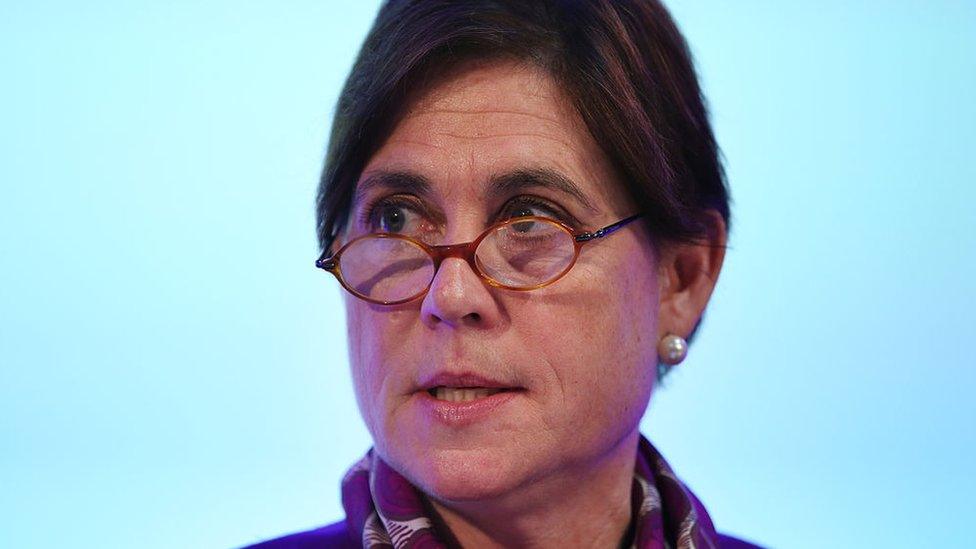
- Published28 October 2023
